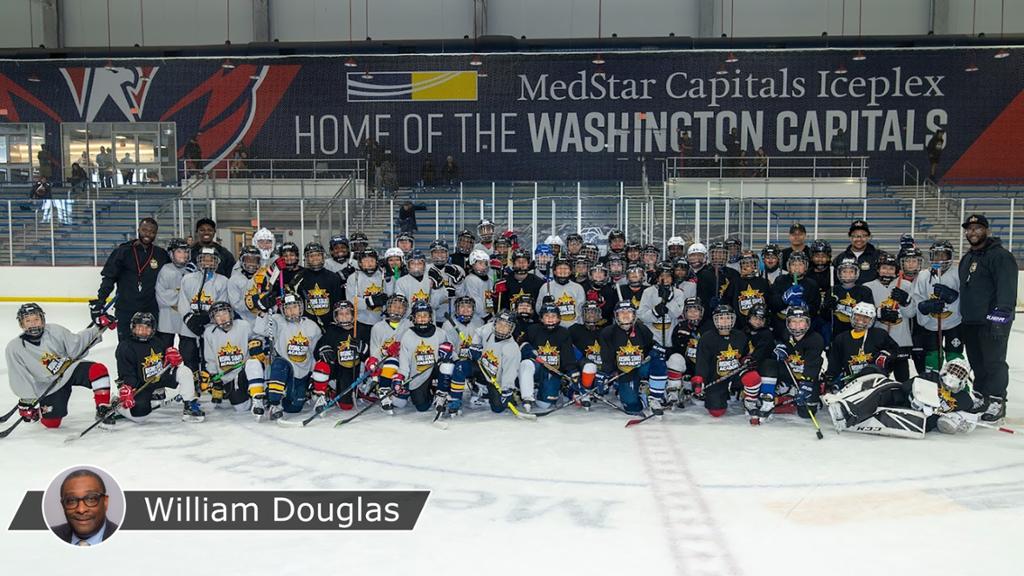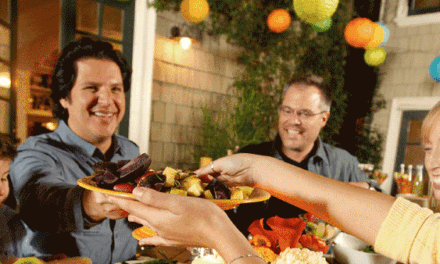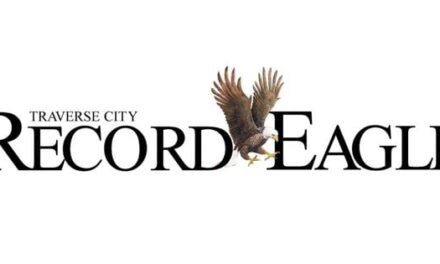
William Douglas has been writing The Color of Hockey blog since 2012. Douglas joined NHL.com in 2019 and writes about people of color in the sport. Today, he profiles the Washington Capitals inaugural Rising Stars Academy, which was held Aug. 19-20 at the team’s practice facility in Arlington, Virginia.
Braeden Montague’s mother cut a family visit to Winnipeg short when she learned the Washington Capitals were hosting a weekend academy for elite players of color and drove for 24 hours so he could attend.
“It was important for him to see other hockey players of color who are successful,” Raveena Seeraj-Montague said of her 15-year-old son. “So I drove 10 hours on Thursday and finished it off on Friday.”
Braeden was all smiles on the ice Saturday and Sunday and was among 115 players — 97 boys and 18 girls — who participated in the Capitals inaugural Rising Stars Academy, a free on-and-off ice event to help players advance and to create a hockey community that players and families can tap into throughout the season.
“It’s been pretty fun, I didn’t expect to see this many people of color,” said Braeden, who is a defenseman for the Potomac Patriots in Woodbridge, Virginia. “It means I’m not the only one in hockey because, honestly, I’ve never seen this many players of color at a rink.”
Daunte Abercrombie, a member of the Capitals Black Hockey Committee who served as a Toronto Maple Leafs coaching development associate last season, was the lead coach at the camp which was held at MedStar Capitals Iceplex, Washington’s practice facility in Arlington, Virginia.
Abercrombie said he expected between 40 to 70 players between the ages of 9 and 17 to sign up for the camp when Washington announced it in June.
The demand was so high that Capitals officials added two more hours of ice time each day to accommodate the players.
“The word I used early and often was ‘overwhelming,'” said Abercrombie, who learned to play hockey as a child with Washington’s Fort Dupont Ice Hockey Club, the oldest minority-oriented program in North America. “Emotionally, it was a lot this morning, in a good way, to see the number of faces staring back at us … eager to learn from us. I can’t thank the Washington Capitals enough for providing this opportunity, not only to these athletes but to us, as coaches, to be able to be the ones in this spot to help them through this moment.”
The academy was funded through the Capital Impact Fund, which was established in 2020 by the Capitals and Monumental Sports & Entertainment Foundation to provide grants to organizations that can assist in eliminating cost barriers faced by people of color in the hockey community.
Peter Robinson, the director of youth hockey development for the Capitals, said the response to the academy is a testament to Washington’s efforts to make the sport more inclusive.
“It shows me that this is needed, and this is necessary,” he said. “We’re trying to provide access to the sport, we’re trying to grow the game, we’re trying to remove barriers to entry, and we’ve done that. Fifteen years ago, we would have done this and we would have had, maybe 20-30 kids. And today just seeing the impact, to see the interest. These were the families that were able to attend a couple of weeks before the season.”
The camp included off-ice lessons on conflict resolution, utilizing curriculum developed by Players Against Hate, a nonprofit organization, talks on how to deal with media inquires, how to handle social media, and healthy eating tips and cooking demonstrations from Joel “Chef JoJo” Thomas, a Washington-area private chef and recreational hockey player who was featured in the NHL-produced series “Skates & Plates” in December 2020 with former Capitals forward Garnet Hathaway, who signed with the Philadelphia Flyers on July 1.
“This has been amazing,” said Lena Williams, a forward from Germantown, Maryland, who will be trying out for Long Island University’s NCAA Division I women’s hockey team in September. “This camp really gets communities together to understand the level of playing hockey and each other’s backgrounds to have a better understanding of the game.”
Trinity Moore, a 10-year-old goalie, said the camp gave her the rare opportunity “to skate with a bunch of players and coaches who look like me.”
“It makes me feel comfortable in the sport,” said Moore, who wants to play professional hockey. “I want to get better and, hopefully, see more people like me around.”
Robinson said Capitals officials are already thinking about the next phase for their academy, which was inspired by the Pittsburgh Penguins’ Willie O’Ree Academy for elite players of color.
“We saw what Pittsburgh did. They started small and then, in Year Three, it’s an eight-week camp this summer, which is amazing,” he said. “We’re looking to expand. Rising Stars is an umbrella program that we’ll activate all season long. Our goal is to make an impact and provide an opportunity.”
Photos: Jess Rapfogel/Washington Capitals




